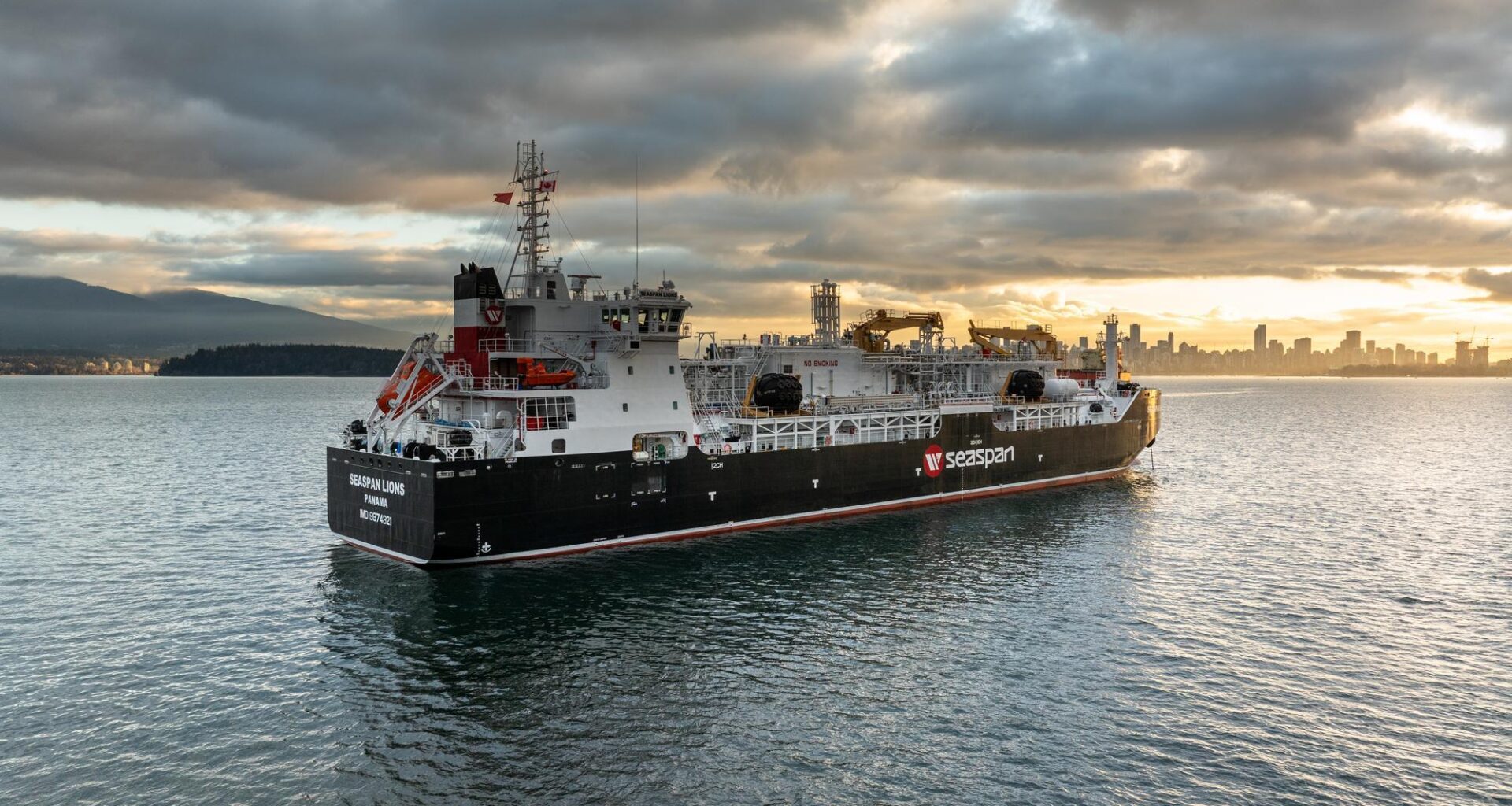The US-based climate solutions specialist Anew Climate and Seaspan Energy, part of Canada’s Seaspan Marine, have completed their first ship-to-ship (STS) loading operation of renewable liquefied natural gas (bio-LNG) in the Port of Long Beach, California, making an important step forward in the transition to lower-carbon marine fuels on the North American West Coast.
Following the recent announcement of a strategic agreement to deliver bio-LNG at scale, the two companies have completed their first bunkering of a commercial container vessel.
The renewable natural gas (RNG) used to produce the bio-LNG was sourced from a Morrow Energy facility. The RNG from this facility has a low certified carbon intensity of 7.74 grams of CO2e per megajoule of energy under the ISCC framework.
As explained, the loading operation serves as a critical proof-of-concept for the scalable deployment of bio-LNG in commercial shipping, demonstrating its immediate potential to decarbonize maritime transport.
“This pilot is just the beginning,” Harly Penner, President of Seaspan Energy, commented.
“We’re proud to collaborate with Anew Climate to forge a new path for lower-carbon marine fuel. Together, we’re demonstrating that sustainability and performance can go hand in hand.”
The loading builds on Anew Climate’s previous milestones in the sector, including the first bio-LNG fueling of a marine vessel in the U.S. in 2021 and the launch of a carbon-neutral platform supply vessel in 2022.
“Anew continues to take affirmative steps to expand opportunities for shippers to deploy Bio-LNG across the globe, and together with Seaspan, we’re making a real impact by reducing maritime emissions today,” Andy Brosnan, President of Anew Climate Low Carbon Fuels, said.
